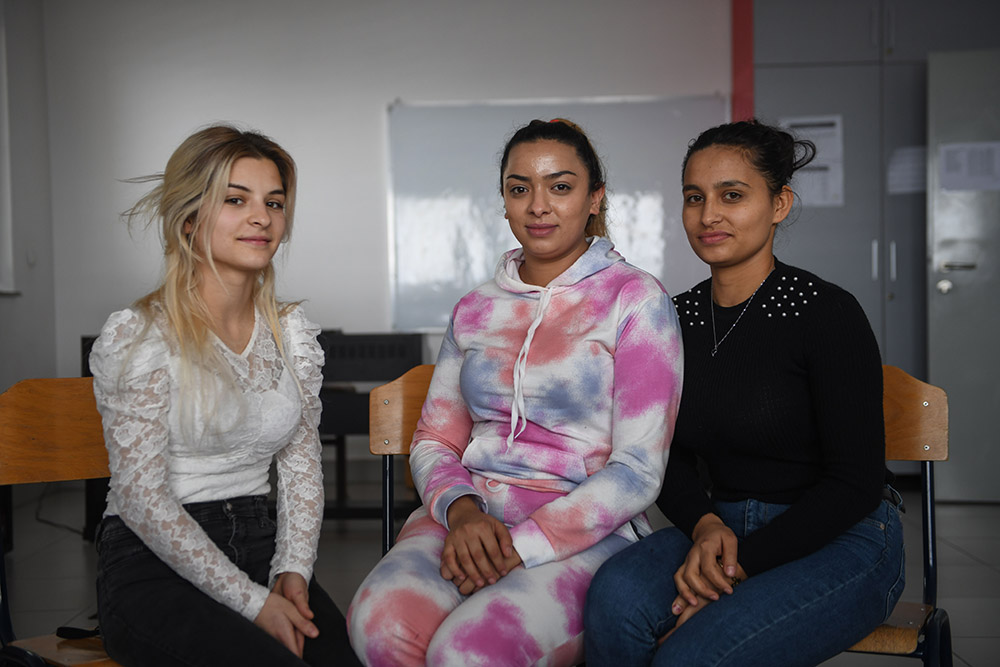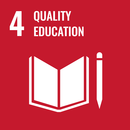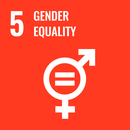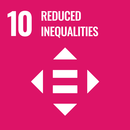Short Description & Project Goals
The municipality of Prizren in Kosovo hosts large settlements of Roma, Ashkali and Egyptian minorities. In the heart of Prizren, in the Tranzit neighborhood, CONCORDIA Projekte Sociale Kosovo (CONCORDIA) took over operational responsibility for an inclusive and educational day center in 2021 - the current "CONCORDIA Tranzit Centre".
Girls, young women and women - especially mothers - of Roma, Ashkali and Egyptian origin are particularly at risk of social exclusion. The widespread domestic, sexualized as well as gender-based violence is part of the reality of life for many girls and women. A targeted expansion of the learning and recreational activities of the CONCORDIA Tranzit Centre are indispensable in order to tangibly and sustainably improve the living realities of girls and women from marginalized communities. To achieve this goal, counseling and self-help groups are initiated and accompanied by a multidisciplinary team. At the same time, participants are supported in their job search through individual and group counseling, and needy families receive direct assistance in the form of food and hygiene packages. In addition, their children have free access to the ongoing activities of the CONCORDIA Tranzit Center.
Empowering Women of Kosovo aimed to raise awareness among girls and young women, to demonstrate approaches to overcoming gender inequalities and discrimination, and to identify educational and employment opportunities.
The follow-up project, EWOKOS 2.0 builds on the project objectives of the first project to overcome traditional gender relations in the long term.
Two immediate outcomes are achieved as a result of this project:
- girls and women learn how important education is for themselves and for their children.
- Roma, Ashkali and Egyptian girls and women show increased well-being and self-esteem and have improved their knowledge of health, hygiene and sex education.
EWOKOS 2.0 will reach a total of 50 girls and young women aged 12 to 25 who are affected or threatened by extreme poverty, who have experienced discrimination, abuse or neglect or who are neither in education nor employment. The girls and young women are motivated and supported to take up education or employment. They participate in the various activities offered by the Tranzit Centre. These include the day centre with educational, support and leisure activities, psychosocial counselling, career counselling, music lessons and orchestra, the parents' school and the self-help group for women. The girls, young women Therefore, based on the EWOKOS 2.0 project, 15 girls of school age are encouraged to participate in the homework help or orchestra or to learn an instrument. In addition, 10 young mothers will participate in the women's self-help group and acquire new knowledge on everyday and social topics that will support individual personal development. Every month, the participants discuss topics relevant to everyday life, take part in psychosocial and vocational counselling and engage in reading and writing training or sewing workshops. In addition, the mothers take part in workshops on health, hygiene and family planning. Furthermore, the programme participants are actively involved in the planning and implementation of leisure activities such as excursions and cultural events. For the success of the project, it is important to involve the male family members, especially husbands, fathers and brothers, and to involve them in joint activities. In this way, experiences can be shared in a safe environment and a culture of mutual understanding and support can be fostered.

Initial Situation
According to UNICEF, every second child in Kosovo lives in poverty. Two thirds of the children of Roma, Ashkali and Egyptians in the municipality of Prizren live in poverty and one in three in extreme poverty. For girls, young women and women of these communities, the following main problems have been identified:
- Within the Roma, Ashkali and Egyptian communities, children are particularly vulnerable: More than two-thirds of children have experienced physical and psychological abuse, and one in two girls is expected to be married before her 18th birthday. Nearly 20% of children from Roma and Ashkali communities have to work.
- Lack of access to quality education for girls: One in four girls and one in ten boys from Roma, Ashkali and Egyptian communities do not complete elementary school and "even more children [...] are lost in the transition to secondary school." (UNICEF).
- Discrimination and gender-based violence: persistent gender discrimination denies women access to economic, political and social opportunities. Gender-based violence remains a sad reality, with one in five women in Kosovo experiencing physical or sexual abuse and nearly one in three women experiencing sexual harassment.
CONCORDIA works on the ground with professionals, community leaders and authorities to address these multidimensional problems at their roots. The interventions offered support the district's strategic implementation plan to sustainably minimize child poverty, make educational opportunities accessible to all segments of society, and address domestic abuse and sexual and gender-based violence.
Target Groups
EWOKOS 2.0 reaches the following direct target groups:
- 10 mothers (especially underage mothers with many children, young mothers, mothers of young children and single mothers). These 10 participants are new to the programme and have expressed their interest in participating in the group activities, sharing their experiences and developing new experiences and social skills. In addition, the consent of husbands or mothers-in-law is required to enable participation and cooperation.
- 15 girls and young women aged 12 to 25 (especially girls affected by extreme poverty, abuse, neglect and discrimination, and girls who have no education or employment). The target group consists of 10 existing programme participants and 5 new girls and young women. The existing 10 girls continue to be supported in their participation in music lessons and in making music together in the orchestra.
- 10 existing and 15 newly identified girls and women who attend the Tranzit Centre and have been identified by the Mobile Team in the mentioned districts. They participate in the day care programme and interventions of the CONCORDIA Tranzit Centre.
Indirectly, children and family members who participate in various activities of the Tranzit Centre are also involved:
- 50 families at risk of disintegration or affected by extreme poverty. They are the most important social environment of the project participants and actively contribute to the well-being of the girls and young women and mothers.
Furthermore, the so-called support system or the social environment of the programme participants has a high priority in EWOKOS 2.0 and is included in the activities. On the one hand, the support system can actively contribute to marginalisation, but on the other hand, it can also actively contribute to strengthening the personal and professional development of the programme participants. Their involvement therefore ensures the women's participation in the long term. In this way, CONCORDIA Kosovo actively intervenes in the structures of the social and family environment in which the women live.
- Husbands, fathers or male family members of the programme participants, who have a lot of decision-making power in the family, actively contribute to the women's well-being and personal development.
Other family members or the extended household in which the women live. These members can also actively contribute to the improvement of their own living situation and actively support the participation of the programme participants in the EWOKOS 2.0 programme. They also contribute to the women's successful personal, professional and educational development.





